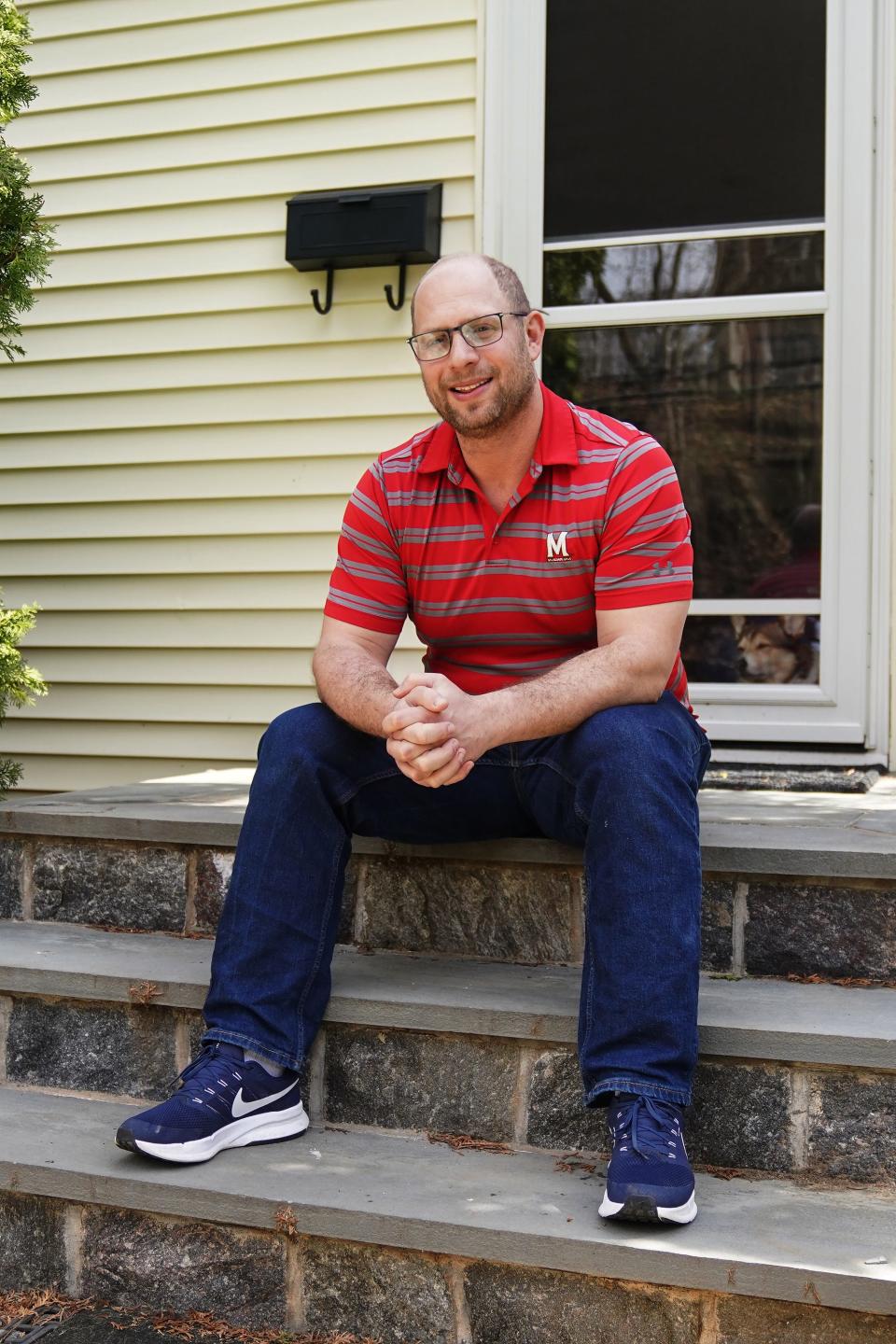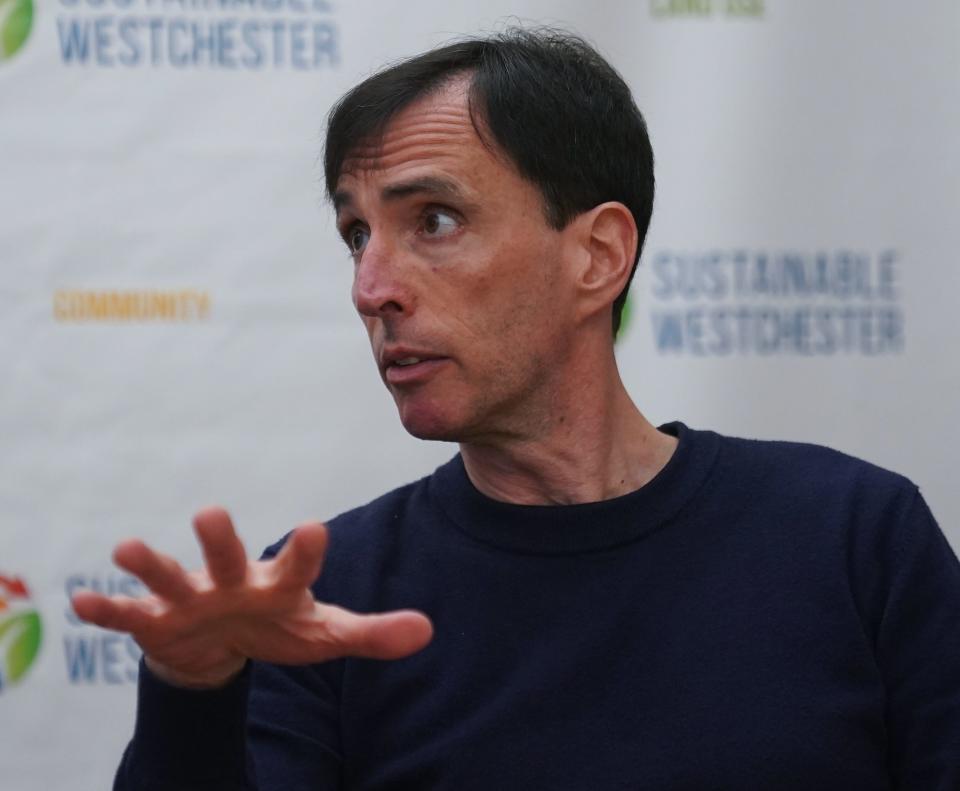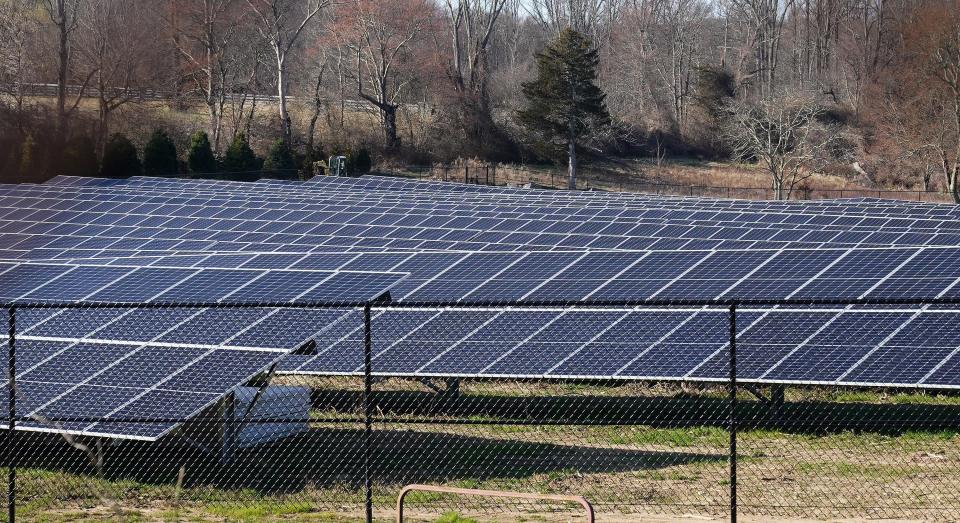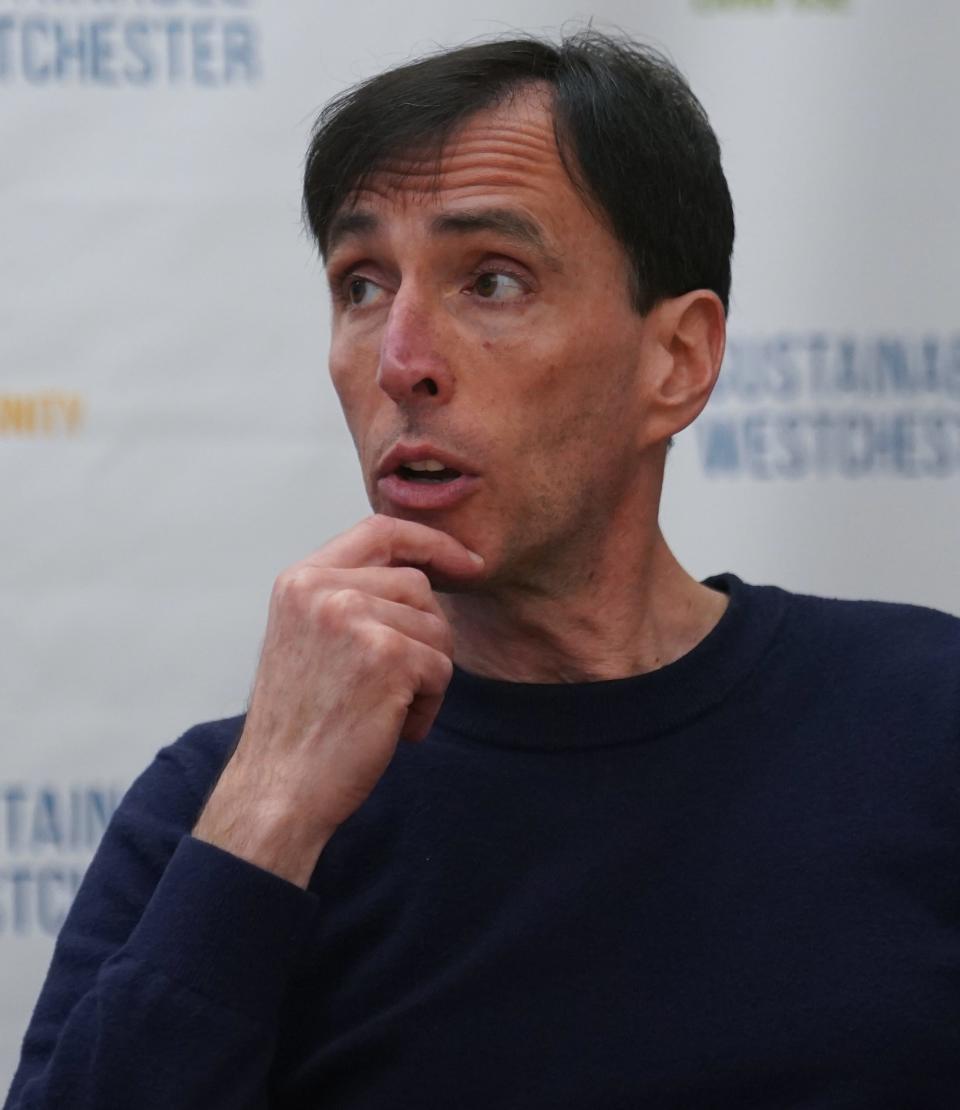Electric customers of Sustainable Westchester pay $48M more with 2-year renewables pact
The premise was laudable: create a consortium of municipalities to boost demand for renewable energy by making it the default provider of electricity for close to 150,000 Westchester households and small businesses.
That goal, however, has collided with growing concerns about affordability in the Lower Hudson Valley, with the consortium's latest contract costing electric customers in Westchester tens of millions of dollars more in higher electric bills.
A Tax Watch analysis found that Sustainable Westchester customers in 23 Westchester municipalities have paid an estimated $48 million more in electric supply charges over the first 16 months of the consortium's fixed-rate 24-month contract for clean energy compared to what they would have paid with Con Edison's variable monthly rates.
Con Edison's power gets generated from a mix of renewable and fossil fuels.
While customers in the 23 participating municipalities are allowed to opt out of Sustainable Westchester’s program and choose Con Edison or another electricity provider, critics of the program say those options aren't on the radar of most ratepayers, who are winding up with higher rates and bills.
“Most people have no idea these towns did this and it’s costing them money every month,” said Eric Zinger, a neighborhood activist who ran for Greenburgh Town Board in 2019. “Thousands of homeowners are trapped in this contract without any idea they were enrolled.”

More: Sustainable Westchester inks new supply deal that could hike electric prices
Greenburgh Supervisor Paul Feiner, who posts the comparative rates in his monthly town newsletter, said it’s time for the town to rethink its relationship to Sustainable Westchester as the consortium prepares to negotiate new long-term rates for its three programs: 24 municipalities served by Con Edison (including Mount Kisco, which gets a standard rate instead of a renewable rate), 5 served by NYSEG, and the city of Yonkers, served by Con Edison.
“When we started with the program, our rates were lower than Con Ed’s and people saved money,” Feiner said. “Now it’s costing people more. We have to come up with a better way of promoting green energy. I don’t want to force consumers to do something that’s not in their interest.”
Timing of Russian war hurt contract
Sustainable Westchester Executive Director Noam Bramson said the nonprofit consortium’s pioneering Community Choice Aggregation program, the state’s largest in support of renewable energy, has been the region's single largest contribution to cutting greenhouse gas emissions. He said such aggregation programs align with state priorities in the battle against global warming and climate change.
Bramson acknowledged that Sustainable Westchester's two-year contract with customers served by Con Edison, struck at the beginning of the Russian invasion of Ukraine, soured after predictions of rising energy costs proved inaccurate.
Sustainable Westchester was negotiating the contract in the spring of 2022 when energy suppliers kept rates high as they braced for projected price hikes that did not materialize.
“This was a very challenging contract,” said Bramson, the former New Rochelle mayor. “There are risks associated with fixed-rate contracts.”

He maintained, however, that the Tax Watch analysis of the current two-year contract was a form of “cherry-picking.” He said Sustainable Westchester’s track record over its 10 years of existence showed savings over Con Edison's variable rate over extended periods. He noted that the nonprofit’s rate for renewable electrical supply was very competitive with other energy suppliers that generate power with clean energy.
“If you compare our renewable rates to the renewable rates in the private market, Westchester Power compares very favorably,” said Bramson. “Plus the structure is such that anyone can opt out at any time with no fee or penalty.”
Westchester Power is a program started by Sustainable Westchester to purchase bulk energy, control costs and increase the use of renewable energy.
The easiest way to opt out of Sustainable Westchester's program on its website. You can also call 914-242-4725.
What Tax Watch analysis shows
The Sustainable Westchester contract for electricity supply for households in 24 municipalities served by Con Edison has proved costly over the first 16 months of the 24-month contract. The Tax Watch analysis compared Con Edison’s variable monthly supply rate since November of 2022 to Sustainable Westchester’s fixed rates for renewable energy and standard supply.
Over those months, Con Edison’s average supply rate was 9.8 cents per kilowatt hour, according to Con Edison rates posted in Feiner’s monthly comparisons.

Sustainable Westchester’s default rate for renewable electricity was 15.3 cents per kilowatt hour, a premium of 54%, in 23 of those municipalities. The default rate was 13.4 cents for standard supply in Mount Kisco. That's a premium of 18% over Con Edison’s variable charge.
More: Do officials on Sustainable Westchester board have conflicts? Questions face New Rochelle
Dan Welsh, director of Westchester Power, said that the average electrical usage was 600 kilowatt hours a month for its 95,000 customers in the Con Edison region, excluding Yonkers.
Con Edison’s average supply charge over those 16 months was $59 a month. For Sustainable Westchester’s renewable rate, the average monthly charge was $91, an annual premium of 54%, or $384 per household to help the transition to clean electricity.
That means Sustainable Westchester customers in these 23 towns have paid an estimated $48 million more in electricity supply charges over Con Edison's variable rate.
How Sustainable Westchester developed
Conceived in 2014, Sustainable Westchester has emerged as the leading voice for climate change programming in the region, with programs for solar energy, sustainable landscaping, weatherization and commercial heating and cooling. It holds considerable sway with the public sector, with 44 of 45 Westchester municipalities members of the nonprofit, and 30 of them participating in the Westchester Power electricity supply program.
The five northern Westchester municipalities served by NYSEG have a one-year contract, with the default electricity supply that's 50% renewable set at 12.16 cents per kilowatt hour.
The Yonkers default rate, also 50% renewables, is 12.45 cents per kilowatt hour.
Sustainable Westchester's top staff has longstanding ties to municipal government. Bramson served 18 years as New Rochelle mayor until he decided not to seek a 10th term in 2023. Leo Wiegman, director of solar programs, served six terms on the Croton-on-Hudson Board of Trustees, including three terms as mayor from 2009 to 2015. Westchester Power Director Dan Welsh has served on the Lewisboro Town Board since 2008.
The cost of electricity supply, which is unregulated, is one part of your electric bill, while delivery charges come from a regulated utility, such as Con Edison or NYSEG. You can get your supply from the regulated utilities, which have month-to-month variable rates, or by contracting with an energy services company, called an ESCO, which have one-to-two year contracts.
In New York, Sustainable Westchester pioneered the concept of community choice aggregations, where municipal boards vote to have the nonprofit be the default provider of electricity supply. This gives the nonprofit clout when it enters the energy market to negotiate with power suppliers.
It’s a way to broaden the market for renewable energy, such a hydro, wind or solar energy. The state of New York’s goal is to have 70% of the state’s electricity come from renewable sources by 2030 and an emission-free electrical grid by 2040.
Currently, 27% of New York’s energy comes from renewable energy, with the lion’s share generated by upstate hydropower, according to New York state Energy Research and Development Authority.

Bramson: Allowing customers to opt-in won't produce scale
Bramson said that community aggregation, with the default supply with Sustainable Westchester, provides the kind of scale needed to support the transition to renewables. He said voluntary opt-in programs just don’t achieve the scale needed to have an impact. Sustainable Westchester's opt-in program that provides cash back to those who cut electric usage during peak demands have attracted just 4,000 customers.
“The opt-out model is the best way to aggregate the buying power,” he said. "It permits Sustainable Westchester to bargain effectively on behalf of customers and facilitates the rapid transition to clean energy that New York established as a goal and all of us should support as a means to address climate change."
But residents who don't know how to opt out are for now stuck with higher bills.
"They are overpaying for electricity and don't know it," said Ken Stahn, a resident of Greenburgh. "And some of them are people looking to put food on the table and afford their prescription drugs."
Which municipalities participate
Municipalities served by Con Edison that are part of the two-year contract with Sustainable Westchester, expiring Oct. 30, are: Ardsley, Bedford, Croton-on-Hudson, Dobbs Ferry, Greenburgh, Hastings-on-Hudson, Irvington, Larchmont, Mamaroneck town, Mamaroneck village, Mount Kisco, New Castle, New Rochelle, Ossining town, Ossining village, Peekskill, Pelham village, Pleasantville, Rye city, Rye Brook, Sleepy Hollow, Tarrytown, Tuckahoe, and White Plains.
Municipalities served by NYSEG with a one-year Sustainable Westchester contract, expiring Dec. 31, are: Bedford, Lewisboro, North Salem, and Somers.
Yonkers has a one-year contract with Sustainable Westchester that is expiring Dec. 31.
Municipalities not enrolled in Sustainable Westchester’s electricity supply program are: Mount Vernon, Pelham Manor, Bronxville, Eastchester, Scarsdale, Harrison, Port Chester, Mount Pleasant, Elmsford, North Castle, Briarcliff Manor, and Cortlandt.
Sign up for Wilson's weekly newsletter for insights into his Tax Watch columns.
David McKay Wilson writes about tax issues and government accountability. Follow him on Twitter @davidmckay415 or email him at dwilson3@lohud.com.
This article originally appeared on Rockland/Westchester Journal News: Customers of Sustainable Westchester saddled with high-rate renewables

